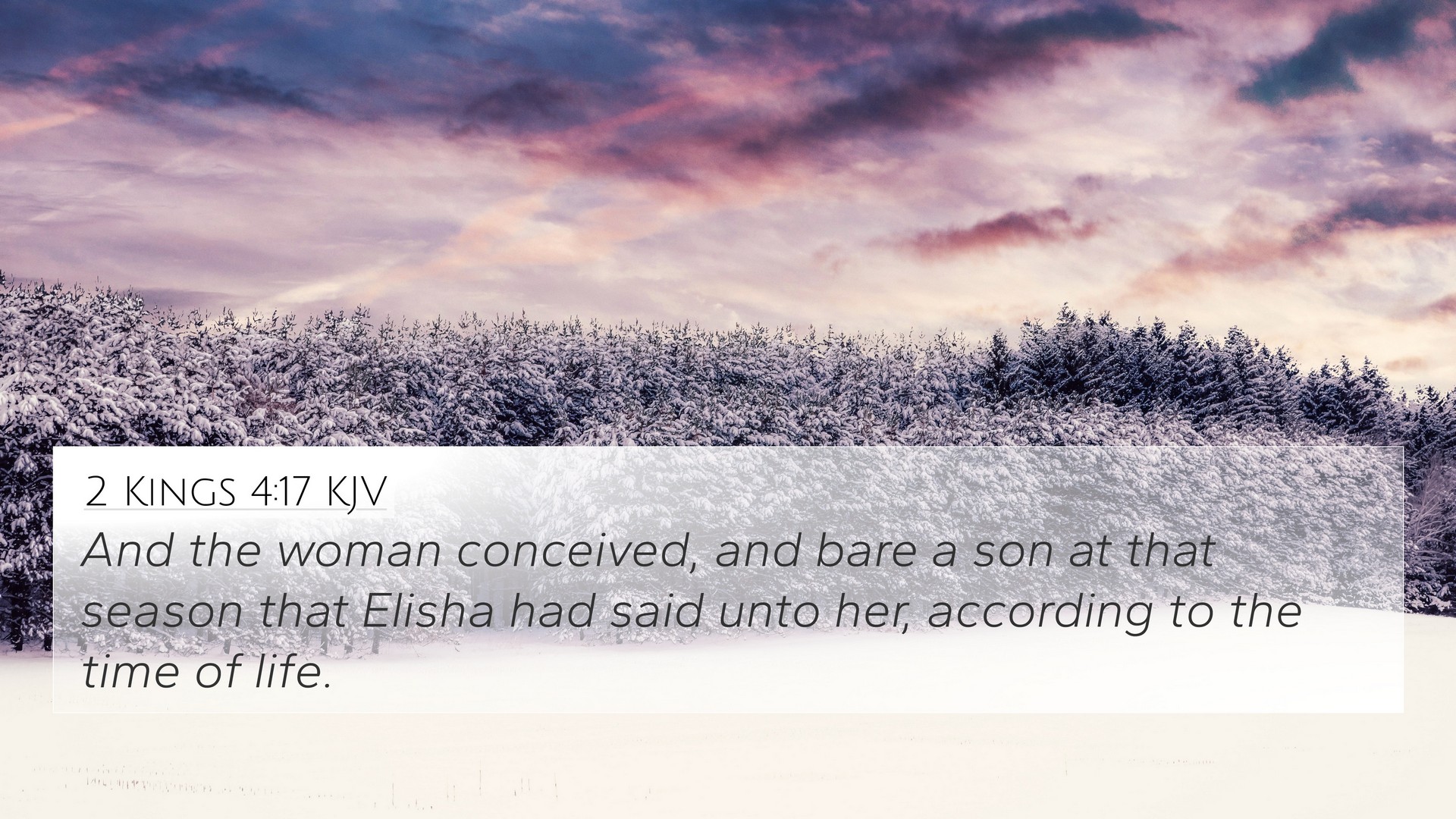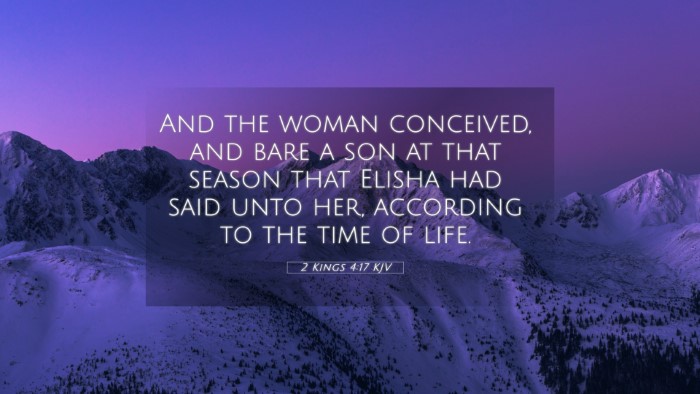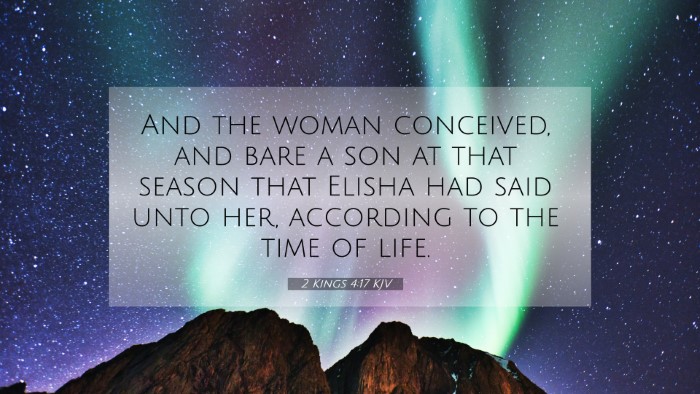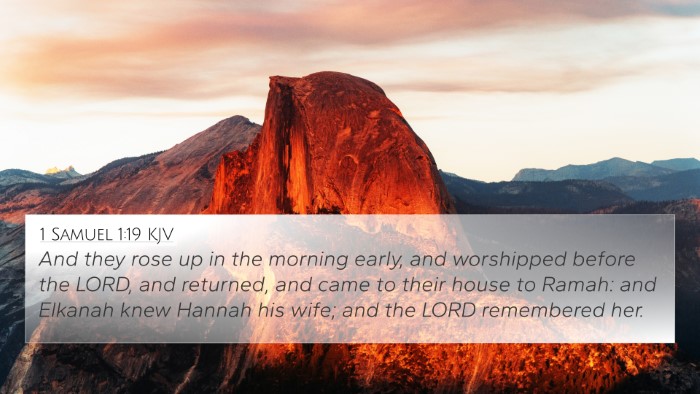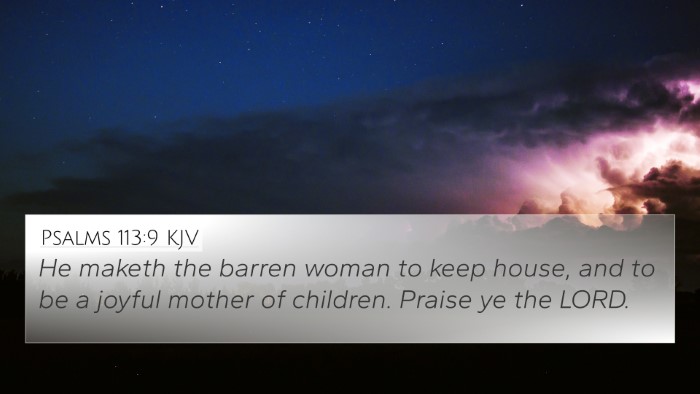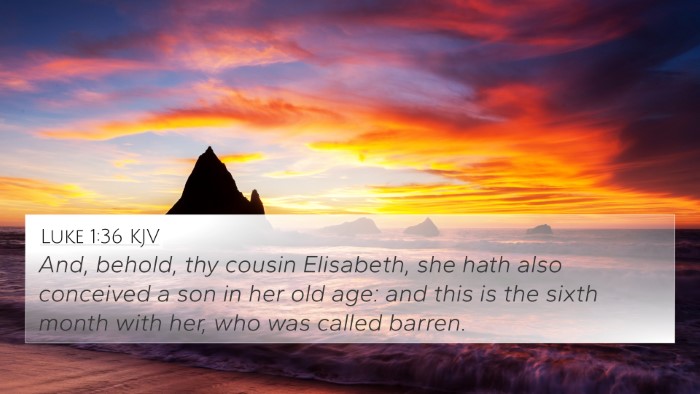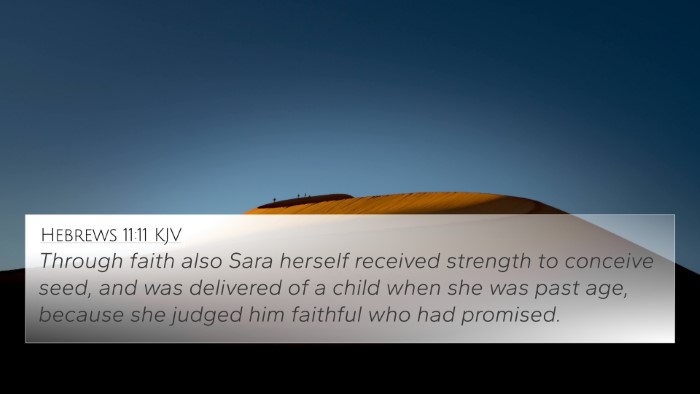Understanding 2 Kings 4:17
Verse: "But the woman conceived and bore a son when the appointed time had come, of which Elisha had told her."
Context and Overview
The passage from 2 Kings 4:17 takes place within a narrative surrounding the prophetic ministry of Elisha. This woman's story illustrates God's power to bless and fulfill promises, even when human circumstances suggest otherwise.
Commentary Insights
Matthew Henry
Matthew Henry's Commentary emphasizes the miraculous nature of the woman's conception. He notes that Elisha, a prophet of God, was instrumental in announcing the promise of a child to this hospitable Shunammite woman. This act is indicative of God's grace and the importance of faith. The child symbolizes hope and divine blessing, showing that God can intervene in the barrenness of life.
Albert Barnes
Albert Barnes' Commentary highlights the significance of timing in God's promises. The phrase "when the appointed time had come" signifies that God's timing is perfect and must always be awaited. Barnes draws parallels between this text and other biblical promises, conveying the essence that believers should remain patient and faithful, trusting that God’s promises will manifest at the right moment.
Adam Clarke
Adam Clarke's Commentary discusses the depth of the Shunammite woman's faith. Despite being initially skeptical, her eventual joy upon receiving the son reflects the profound truth that God often does exceed human expectations. Clarke also draws attention to the child's future significance, hinting at how divine purpose often unfolds beyond the immediate context.
Bible Verse Connections
To allow for deeper understanding, here are some Bible verse cross-references related to 2 Kings 4:17:
- Genesis 18:10-14: The announcement of Isaac's birth to Sarah, exemplifying God's promise and timing.
- 1 Samuel 1:20: Hannah's prayer was answered with the birth of Samuel, illustrating God's intervention in barrenness.
- Luke 1:13-14: The announcement of John the Baptist's birth to Zechariah, another testament to promised blessings.
- Romans 4:20-21: Abraham’s faith in God’s promise echoes the themes present in the Shunammite woman’s narrative.
- Isaiah 54:1: A call for barren women to rejoice, emphasizing the life-giving power of God.
- Hebrews 11:11: Sarah’s faith, portraying how faith leads to divine promises being fulfilled.
- 2 Timothy 1:12: Confidence in God’s promises, encouraging believers to stand firm.
Thematic Bible Verse Connections
The overarching theme of God's providence and miraculous interventions resonates through this scripture. The connections between Bible verses can deepen our understanding of the common themes of faith, divine promise, and the miraculous.
Comparative Bible Verse Analysis
When performing cross-referencing Biblical texts, consider how the stories of Hannah and Sarah provide a backdrop to the Shunammite woman's experience. Each account shows a unique aspect of faith, barrenness, and the eventual fulfillment of God's promise.
Tools for Bible Cross-Referencing
Engaging with Bible concordance and Bible cross-reference guides can aid in studying these connections effectively. Understanding these links between the Prophets and Apostolic teachings through cross-referencing the Psalms with New Testament contexts allows us to appreciate how the themes transcend time and literary boundaries.
Conclusion
2 Kings 4:17 serves as a powerful reminder of God's faithfulness and the joy that accompanies the fulfillment of His promises. By exploring inter-Biblical dialogue through cross-references, believers can gain a fuller understanding of God’s work throughout scripture, strengthening their faith journey.
